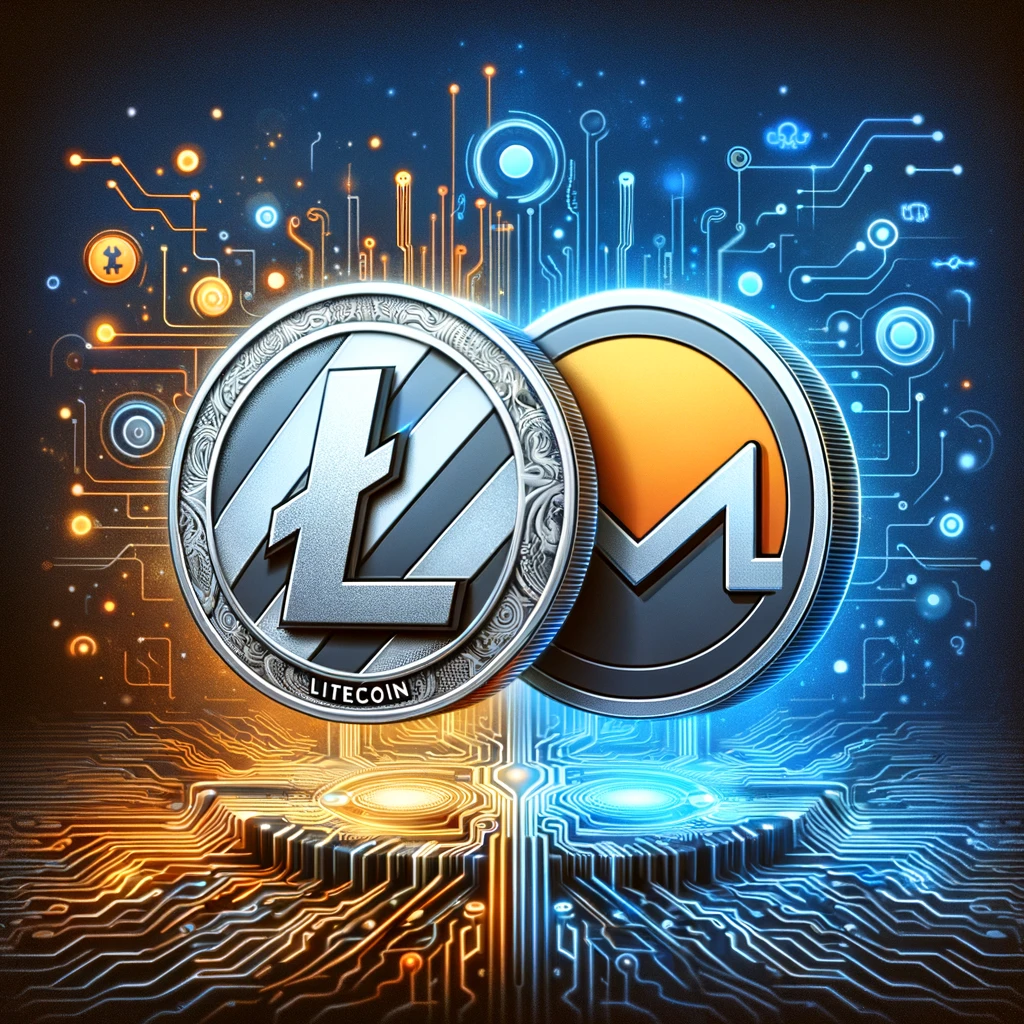The Ultimate Guide to Exchanging Litecoin (LTC) for Monero (XMR): Navigating the Cryptocurrency Conversion Journey
In the dynamic world of cryptocurrencies, the ability to adeptly navigate the exchange of one digital currency for another is invaluable. This comprehensive guide offers an in-depth exploration into the process, nuances, and strategies for LTC to XMR exchange, two prominent players in the ever-evolving cryptocurrency arena.
The Evolution of Litecoin and Monero
Before diving into the mechanics of the exchange, it’s crucial to understand the essence of these two cryptocurrencies.
- Litecoin (LTC): Often referred to as the silver to Bitcoin’s gold, Litecoin was created in 2011 as a lighter, faster alternative to Bitcoin. It’s known for its quicker transaction times and lower transaction costs, making it a popular choice for everyday transactions.
- Monero (XMR): Born in 2014, Monero is the standard-bearer for privacy and anonymity in the cryptocurrency world. Unlike many cryptocurrencies that have transparent blockchain, Monero uses sophisticated cryptography to shield transaction details, ensuring the anonymity of its users.
Selecting the Right Exchange Platform
When it comes to exchanging LTC for XMR, the first step is selecting an appropriate exchange platform. Several factors should guide this choice:
- Security: Opt for exchanges with robust security measures to protect your assets.
- Anonymity: Since Monero is all about privacy, consider exchanges that respect this ethos.
- Fees: Compare transaction and withdrawal fees across platforms.
- Ease of Use: User-friendly interfaces make the exchange process smoother, especially for beginners.
- Reputation: Research the exchange’s track record and user reviews.
Popular exchanges for such transactions include Binance, Kraken, and decentralized platforms like Bisq.
The Process of Exchanging LTC to XMR
Here’s a generalized process, which might slightly vary depending on the chosen platform:
- Creating an Account: Most exchanges require users to create an account and go through a verification process.
- Depositing Litecoin: Transfer LTC to your exchange wallet. It’s important to double-check wallet addresses.
- Executing the Exchange: Choose the LTC to XMR trading pair, and decide whether to place a market order (instant execution) or a limit order (set a desired price).
- Withdrawing Monero: After the exchange, it’s advisable to transfer XMR to a private wallet for enhanced security.
Understanding the Market Dynamics
Exchanging LTC for XMR is not just about a simple swap. Market conditions, including volatility, liquidity, and current news in the cryptocurrency world, can significantly impact the exchange rates and outcomes.
Legal and Regulatory Considerations
Navigating the legal landscape is a critical component of cryptocurrency exchanges. Users must be aware of the regulations governing cryptocurrency transactions in their jurisdiction, especially concerning privacy-centric coins like Monero.
The Role of Wallets in the Exchange Process
Choosing the right wallet for both LTC and XMR is pivotal. For Litecoin, options range from hardware wallets like Ledger or Trezor to software wallets like Litecoin Core. For Monero, the Monero GUI, Cake Wallet, or Ledger are popular choices.
Privacy and Security: The Paramount Importance
In any cryptocurrency transaction, security and privacy are paramount. Employing strong security practices, like using two-factor authentication and keeping the majority of funds in cold storage, is crucial. For those particularly concerned with privacy, additional steps might include using VPNs or conducting transactions over Tor.
The Impact of Exchange Rates and Timing
Exchange rates fluctuate constantly. Timing can significantly affect the amount of XMR received from an LTC exchange. Staying informed about market trends and using tools like price alerts can be beneficial.
The Future Landscape of LTC and XMR
Understanding the future potential and development roadmap of both Litecoin and Monero can inform your exchange strategies. Both cryptocurrencies have dedicated communities and ongoing development, but their focus and direction differ significantly.
Fees and Charges: A Key Consideration
Transaction fees can vary widely between exchanges and can impact the cost-effectiveness of your exchange. Some exchanges charge a flat fee, while others have a percentage-based fee structure.
The Significance of Customer Support
Good customer support can be invaluable, especially in scenarios where transactions don’t go as planned. Responsive customer support is an important factor when selecting an exchange.
Conclusion: A Strategic Approach to LTC to XMR Exchange
Exchanging Litecoin for Monero is more than a simple transaction; it’s a strategic move in the digital currency space. By understanding the unique attributes of both LTC and XMR, selecting the right exchange, and staying informed about market dynamics, users can navigate this process effectively. In the ever-changing world of cryptocurrency, staying agile, informed, and security-conscious is the key to successful digital currency exchanges.
